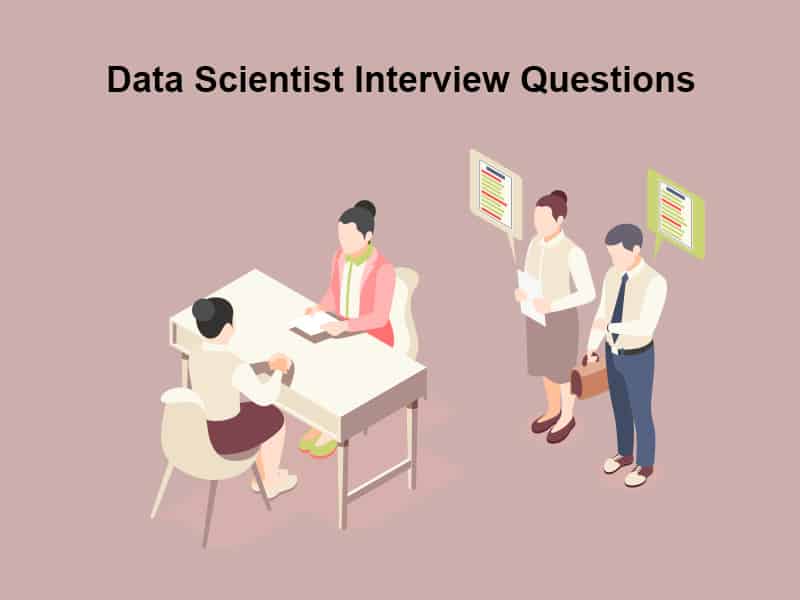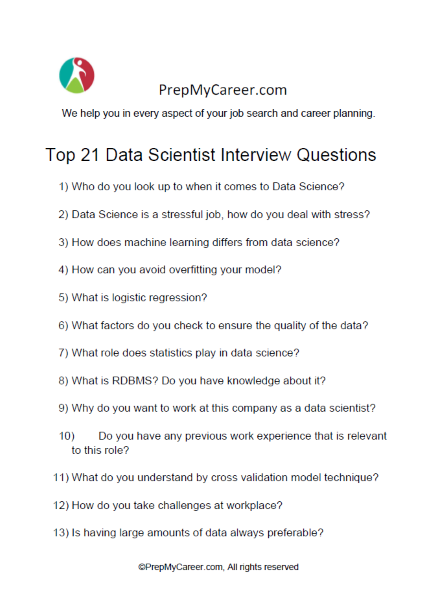Data science is a field that includes using scientific methods, principles, processes, systems, and algorithms to extract data, information, knowledge, and insights from different sources of primary and secondary data which can either be structured or unstructured, and also includes applying knowledge and insights to from a wide range of application domains to get actionable results.
This field helps organizations and companies refine and identify target audiences by creating a combination of existing and new data to develop valuable insights. Data science also helps to hire managers to generate data points that can help them hire the best possible candidate for a particular job role.
In short, this field has a very broad scope and has multiple roles and objectives. Data scientists are the professionals who are responsible for identifying, collecting, organizing, analyzing, and interpreting large amounts of data and using them to develop useful insights that can help the company to achieve desired goals.
Now that the companies and organizations have started to value and have realized the importance of big data, the demand for Data Scientists continues to increase and thus makes it a lucrative career option and also one of the highest-paid jobs in the business industry. So, you have the skills, qualifications, and knowledge for the same, we would suggest you go for it.
In this article, we will help you through your preparation for a Data Scientist Interview through the list of 21 frequently asked interview questions with answers.

Common 21 Data Scientist Interview Questions
Question 1. Who do you look up to when it comes to Data Science?
Answer: “There are two people who I look up to as a role model for my field and they are
- Kenneth Cukier: I look up to him because I have read his book Big Data: a revolution that will transform how we live, work and think. He conducts AI research in top B-schools and is a very profound data editor for The Economist.
- The second person whom I look up to is Bernard Marr, he is a strategic advisor on data insights to businesses and government. He is also one of the best five business influencers and I highly admire his writings and teachings.”
Question 2. Data Science is a stressful job, how do you deal with stress?
Answer: “Learning from my past work experiences, I am aware that you have to work in a very stressful environment and the superiors always set a high expectation from your performance. So, to avoid getting tired or stressed I keep taking 5-10 minutes break after completing a task to stay productive throughout the day.”
Question 3. How does machine learning differs from data science?
Answer: Machine Learning means the group of techniques that are used by data scientists which allow modern machine like computers to learn from data while data science aims at using a scientific approach to extract data and develop insights from the data.”
Question 4. How can you avoid overfitting your model?
Answer: “When a model is set just for a small amount of data and ignores the bigger picture, it refers to overfitting, and to avoid it, I will keep the model not very complex by taking few variables into account, so that the data complexity reduces and the usage of cross-validation techniques can also help to avoid overfitting.”
Question 5. What is logistic regression?
Answer: “It can be defined as a technique to predict the binary outcome from a linear combination of predictor variables. It is also called the logit model. The outcome of prediction is binary that is 0 or 1. An example of such a concept could be, the possibility of a leader winning the election.
Question 6. What factors do you check to ensure the quality of the data?
Answer: “To check the quality of the data, I always check its
- Accuracy
- Integrity
- Consistency
- Completeness
- Conformity
- Uniqueness”
Question 7. What role does statistics play in data science?
Answer: “Statistics play a very important role in data science. It is essential to assist data scientists in getting a better idea of the customer’s and consumers’ expectations. A data scientist can acquire knowledge about various important things like consumer interest and behavior, trends and engagement, retention, etc. in short, it helps to build robust data models to validate predictions and inferences.”
Question 8. What is RDBMS? Do you have knowledge about it?
Answer: “RDBMS stands for Relational Database Management Software which is based on the relational model to create a database in order to store data. Yes, I have used MySQL which itself is a relational database software to store data in the form of tables and databases by using queries to add, update, delete and modify the data.”
Question 9. Why do you want to work at this company as a data scientist?
Answer: “I have been in the technological field since high school and I have qualifications in computer science and I am passionate about working as a data scientist as I love working with data and numbers, and also with all the coding and programming. I always wanted to work in such a data-driven company as yours and that is why I am looking forward to working as a data scientist for your company.”
Question 10. Do you have any previous work experience that is relevant to this role?
Answer: “Yes, I worked as a data scientist intern for a tech company where my role was to gather customer feedback and attract more customers from multiple platforms both online and offline. My main role was to gather information about what most of the customers find the issue with the device issued to them by the company. I learned a lot of skills from that job and I am sure that skill will transfer to this role as well.”
Question 11. What do you understand by cross validation model technique?
Answer: “Cross-validation is a model validation technique. It is a technique for assessing how the analysis of statistics generalizes into an independent data set. This technique is mostly used for evaluating machine learning models.”
Question 12. How do you take challenges at workplace?
Answer: “Data science is a challenging field, and in a team environment like this one where we have to face a little competition among the peers for better performance, it is better to take challenges in the form of motivation to be able to discuss different ways on how we can solve an issue. My problem-solving skills and critical thinking skills help me to face these challenges at a workplace.”
Question 13. Is having large amounts of data always preferable?
Answer: “It depends on the case and the situation. An analysis such as cross-benefit analysis can help us to determine whether or not large amounts of data are preferable. A large amount of data collection will mean a large number of costs involved in the process and therefore this determination is really important when it comes to gathering data from a large number of subjects.
Question 14. In what cases do you need to perform resampling of data?
Answer: “Resampling is done when validating models using random subsets while substituting labels on data points when performing necessary tests, and estimating the accuracy of sample statistics by drawing randomly with replacement from using as subsets of accessible data or replacement from the set of the data point.”
Question 15. What are the four commonly used algorithms by data scientist?
Answer: “1. Linear Regression, 2. KNN, 3. Logistic
Regression, and Random Forest.”
Question 16. What skills do you have as a data scientist?
Answer: “being a data scientist, I have decent skills of phython coding, unstructured data, I a well-versed with statistics, data extraction and I also know how to use most popular analytic tools. I am extremely good with numbers and calculations as well, which makes me a better candidate for this field.”
Question 17. What do you mean by correlation?
Answer: “Correlation can be defined as a statistical measure that expresses how two variables are linearly related and how they keep changing at a constant rate. These are of three types,
- Positive
- Negative
- No correlation”
Question 18. Is there anything that you want to ask or clear?
Answer: Answer this question by asking the employer more questions related to the company to demonstrate your curiousness and your interest in working with the company.
Question 19. What is your experience being a data scientist?
Answer: “I have been in this field for over one year now and I have explored a wide range of datasets. I am now aware of what companies look for in a data scientist, and I aim towards working at it. I know how business analytics work and I am keen to know more about this field including artificial intelligence.”
Question 20. What does a typical day at work look to you?
Answer: “My job responsibilities would include most of the time spent on research data, and writing algorithms and programs to answer the question related to the data sets. I would also be responsible for creating reports and communicating them to the manager.”
Question 21. What do you dislike the most about being a data scientist?
Answer: “Well, I absolutely love what I do, but one thing that keeps me bothering about the job of a data scientist is that sometimes it requires a lot of patience and I am working on developing that patience level by learning and gaining practical experience in this field.”
Download the list of questions in .PDF format, to practice with them later, or to use them on your interview template (for Data Scientist interviews):

References
https://link.springer.com/chapter/10.1007/978-3-319-04948-9_2
Sandeep Bhandari is the founder of PrepMyCareer.com website.
I am a full-time professional blogger, a digital marketer, and a trainer. I love anything related to the Web, and I try to learn new technologies every day.
All the team management, content creation, and monetization tasks are handled by me. Together with the team at PrepMyCareer, the aim is to provide useful and engaging content to our readers.